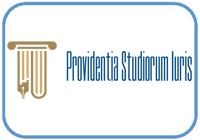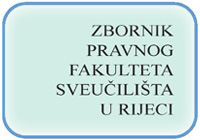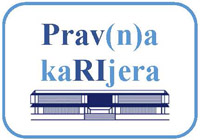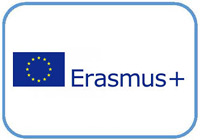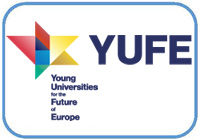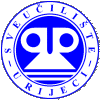About the Library
The library was founded in 1976, and in 2003, after the expansion of the Faculty building, it was moved into new spaces and divided in three parts: the reading room, the storage, and the offices for the library staff. There are 48 seats in the reading room for work and study.
The library procures different types of library materials, that is, library materials, serial publications, and databases. The library has 40 980 titles of library materials and 108 foreign print journals and 136 national print journals. Library also has old library materials that consist of four valuable collections: Senj Archdiocese Collection, Ružić Collection, Academician Luje Margetić Collection, Petar Simonetti Collection.
One of the main principles in the work of the Library is ensuring accessibility to library materials, which is why special emphasis is put on the speed, availability, and quality of sources of information for its end users, who can access the online catalogue of the Library and online catalogues of other libraries. The online catalogue enables search by author, title, subject, words from the title, UDC or keyword, ISBN, ISSN, and ISMN. Crolist is connected to the Croatian library network it is free, easily accessible, and the cooperation with other libraries is at a satisfactory level. In the online catalogue of the Faculty’ Library, end users can also check the number of volumes of a certain title and whether the book is out and until when.
The visibility of the library collection has greatly increased by connecting the Library’s online catalogue to the Rijeka University Union Catalog. In this way, the Library’s collection is more visible and more accessible to a larger number of users.
Due to the continuous and rapid development of information and communication technology and the demands of its users, librarians pay a lot of attention to acquiring electronic sources of information. Users have access to a large number of databases, such as: Web of Science, Current Contents, Scopus, ScienceDirect, Ebsco, EMERALD, JSTOR, Hrčak (Croatian Portal of Scientific Journals), Hrvatska znanstvena bibliografija (Croatian Scientific Bibliography) – Crosbi, etc. Besides being familiar with bibliographic, citation, and full-text databases important for scientific research, users also need to use, as primary sources in the study of law, various legal databases, legislation databases, and case law databases. Because of this, the Faculty has acquired access to a large number of legal databases: Westlaw, Beck online, HeinOnline, EUR-Lex, Iusinfo and Croatian Supreme Court database, etc. These databases are indispensable for the scientific work of the Faculty’s teaching staff and students, who find them valuable in their work. These databases contain full-text articles, official documents, case law of a number of countries, and users tend to use them very often because they can obtain necessary information fast and at one location, without the need for searching other webpages.
Taking into account the challenges that law scholars face when deciding where to have their papers published, including the indicators of quality of journals and the importance of international visibility, the Library provides training in the field of research information, open science, valuation of research, etc. In this regard, a Guide for Publishing in the European Research Area has been made. Similarly, the Library offers support to scientific and developmental research of the higher education and research community in accordance with the needs of that community. Its services contribute to scientific research, improve the quality of the system of research communication, promote the importance of judgement and valuation of research, follow and record the entire publishing activity of the Faculty, conduct bibliometric and other metric research and services of editing user profiles of the teaching staff, maintain and adminster the bibliography of the scientific-teaching staff and ensure access to digital educational materials.
The Library has excellent cooperation with other legal and similar libraries in Croatian and the region. This cooperation is achieved through interlibrary lending, exchange, and gifts of legal books, annual regional meetings of legal librarians, presentations at conferences, and so on.
Information literacy programme
The information literacy programs have become a necessary part of every higher education libraries work, since the competencies and skills encompassed by information literacy programs become a precondition for successful learning. Information literacy within the field of law is based on large number of specific aspects, even unique ones with regards to other scientific fields. Library practice has shown that there is a need for developing information literacy in the field of law. Therefore, in cooperation with lecturers and assistants, the Faculty organises and carries out different programmes for developing information literacy, such as workshop and lectures, intended for students in different years of study and in different courses. In cooperation with the teaching staff, such training is carried out at the first year of Integrated Study of Law and Administrative Studies in the course “Legal Writing”, as well as at the third year of Integrated Study of Law as part of the research seminar “European Law II”. The Library has also organised lectures for the University’s teaching and library staff on legal databases.





